The Beef with Beef

Is “sustainable beef” an oxymoron? The world’s largest beef producer claims they’re working on it – but will it be enough?
Is big beef its own worst enemy?
The ingredient list for your average hamburger includes 15 gallons of water, 14 pounds of feed, and 65 square feet of land [1]. Beef is among the most resource-intensive foods out there (Exhibit A). As a result, the industry is subject to enormous risk due to climate change impacts across its supply chain. First, they must adapt to unpredictable availability and cost of feed and water. Second, they must prepare for flooding, drought, natural disasters, and resulting increases in livestock disease [2] (Exhibit B). As these resource constraints escalate, population growth and increasing meat consumption per capita are projected to drive a 73% increase in global meat consumption by 2050, further exacerbating these challenges [B].
Mitigating climate change impacts is just one side of the equation. Animal agriculture globally accounts for 14.5% of GHG emissions – by some calculations, greater than the global transportation sector [9] (Exhibit B). Methane emissions from enteric fermentation (cow flatulence) are the main culprit (Exhibit C). Furthermore, cattle is one of four “forest-risk commodities” causing deforestation in the Amazon, producing 15% of global GHG emissions [3]. The result is not just a moral imperative to change – but also real economic consequences. Reputational pressure from end-consumers and regulatory changes like the Paris Agreement create substantial pay-offs for investments in sustainability [4].
EXHIBIT B [2]
EXHIBIT C [2]
Can “beef” and “sustainability” exist in the same sentence? JBS is giving it a try.
JBS, the world’s largest global producer of beef, is vocal about their commitment to sustainability. They have made investments across the supply chain to both mitigate impacts and reduce their environmental footprint, receiving an “A-” sustainability score from Driving Sustainable Economies (CDP) [3]. Their corporate strategy highlights efforts devoted to the prioritization of sustainability initiatives – land management, water use, energy use, and waste are among the highest-priority areas [6].
JBS regularly invests in operational improvements to optimize logistics, improve energy efficiency, increase use of renewable energy, and meet standards for waste disposal and wastewater treatment [7]. Through their Environmental Management System (EMS), they provide transparency to metrics such as emissions and water usage per output, allowing them to set targets, adjust procedures, and design projects to reach goals [7]. Finally, JBS is engaging the industry on these topics; they are members of the Global, US, Canadian, and Brazilian Roundtables for Sustainable Beef [7].
Their ‘Cattle Agreement’ with Greenpeace commits to tracing cattle to prohibit sourcing from ranchers associated with deforestation. The ‘New Field’ Program in Brazil promotes sustainable ranching practices, and thus far has produced 5-10% emissions reductions and doubled productivity [3]. Finally, the Carbon Neutral Meat Program in Brazil will design a new livestock – forest integration model [3]. Highly publicized initiatives like these – which intend to improve efficiency and productivity while minimizing environmental impact – are central to their medium-term sustainability strategy.
While JBS’s investments in climate change mitigation appear substantial to date, recent scandals call their credibility into question. This May, an investigation uncovered that JBS Brazil has knowingly and regularly sourced cattle from illegally deforested land for many years [8].
If that’s not enough… what is?
As a global power-house with a diversified supply chain and ongoing investments in resource efficiency, JBS is well-positioned to weather the short- costs associated with climate change. That is, within the current industry context and business model. But the greatest risk to JBS – and their competitive set – is the mutual exclusivity of future beef production scaled to demand and the 2°C global warming “tipping point.” If the two cannot coexist, either: 1) economic forces will effectively destroy the industry, or 2) the planet will reach a point of catastrophic impact. JBS must move from incremental to transformational change to mitigate this risk. There are several actions JBS can take:
- Commit to substantial R&D investment to drive technological innovations across their supply chain, focusing on maximizing impact. More specifically, seek to develop / adopt pilot, and scale methane capture solutions – an area where JBS has been silent to date. Solutions to dramatically reduce methane emissions from cattle span from “fart bags” to genetic alterations to feed supplements, none of which has been commercialized [2] (EXHIBIT D).
- Launch industry-wide research initiatives and target-setting through regional and global Roundtables for Sustainable Beef. The industry is highly consolidated and cooperation between leading players can benefit all players by 1) highlighting current best practices, 2) funding research, and 3) painting the industry in a better light.
- Diversify more aggressively by investing in alternative protein sources to hedge against future market shifts. Such products include plant-based meats, insect-based protein sources, and lab-grown (“cultured”) meat products (EXHIBIT D). These solutions mitigate risks associated with feed, water, and land availability and shifting climates. As technologies improve, they may become true replacements. JBS competitors Tyson and Cargill are already hedging by investing in such companies.
EXHIBIT D
“Fart bags” capture methane emissions | Memphis Meats grows beef in a petri dish
JBS is not unique in their predicament. Yet they have ostensibly demonstrated a desire to be “ahead of the curve” in mitigating climate risks and recognizing anticipated economic benefits of adapting. Will the incentives for transformational change be enough to motivate action given the costs – particularly if competitors do not buy in – in a commodity industry struggling to maintain profits?
(800 words)
______________________________________________________________________________________________________
SOURCES
[1] “We are killing the environment one hamburger at a time,” Business Insider. http://www.businessinsider.com/one-hamburger-environment-resources-2015-2
[2] Climate change and livestock: Impacts, adaptation, and mitigation. http://www.sciencedirect.com/science/article/pii/S221209631730027X#f0005
[B] http://www.fao.org/news/story/en/item/116937/icode/
[3] Global Forests Report 2016, CDP. https://www.cdp.net/en/research/global-reports/global-forests-report-2016
[4] “How to quantify sustainability’s impact on your bottom line,” Harvard Business Review. https://hbr.org/2017/09/how-to-quantify-sustainabilitys-impact-on-your-bottom-line
[5] “Sustainable Diets: What you Need to Know,” World Resources Institute. http://www.wri.org/blog/2016/04/sustainable-diets-what-you-need-know-12-charts
[6] JBS Website: Sustainability. http://jbssa.com/sustainability
[7] JBS Annual and Sustainability Report, 2016. http://jbss.infoinvest.com.br/enu/4070/JBS%20RAS%202016%20EN%20170502%20Final.pdf
[8] “Brazil’s JBS accused of violating Amazon rainforest protection laws,” Reuters. https://www.reuters.com/article/us-brazil-environment-cattle/brazils-jbs-accused-of-violating-amazon-rainforest-protection-laws-idUSKBN1722O1
[9] “Livestock – Climate Change’s Forgotten Sector: Global Public Opinion on Meat and Dairy Consumption,” Chatham House. https://www.chathamhouse.org/publication/livestock-climate-change-forgotten-sector-global-public-opinion-meat-and-dairy?dm_i=1TY5%2C30JL0%2CBHZILT%2CAUGSP%2C1


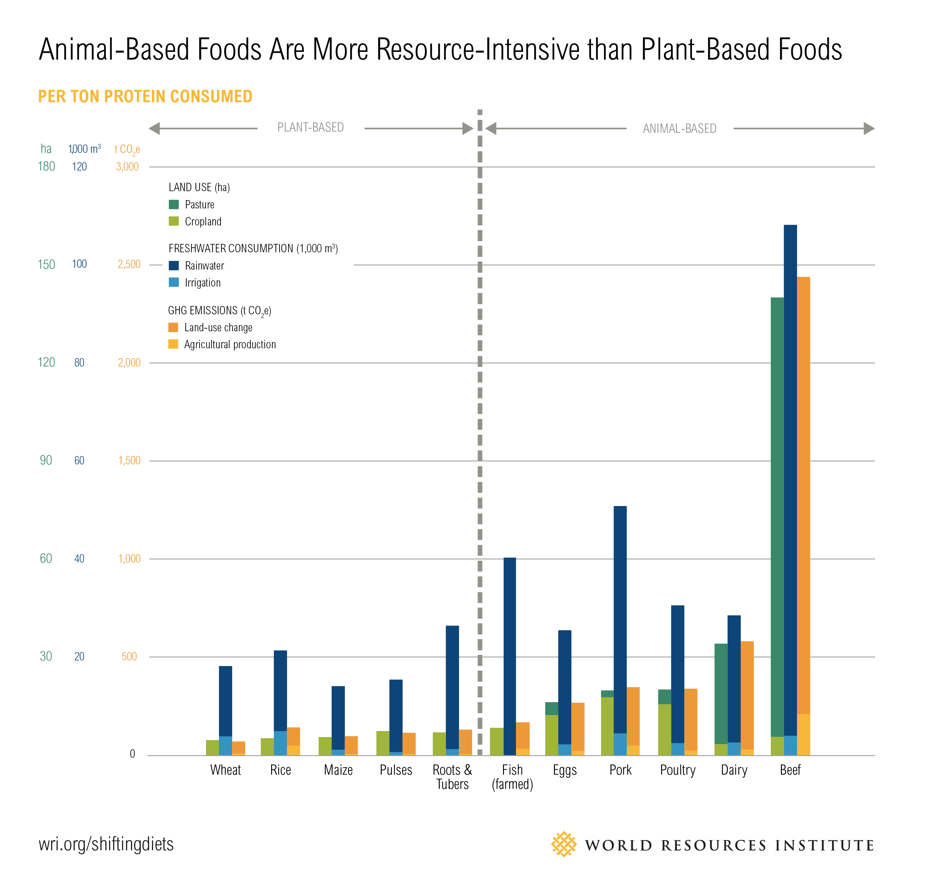


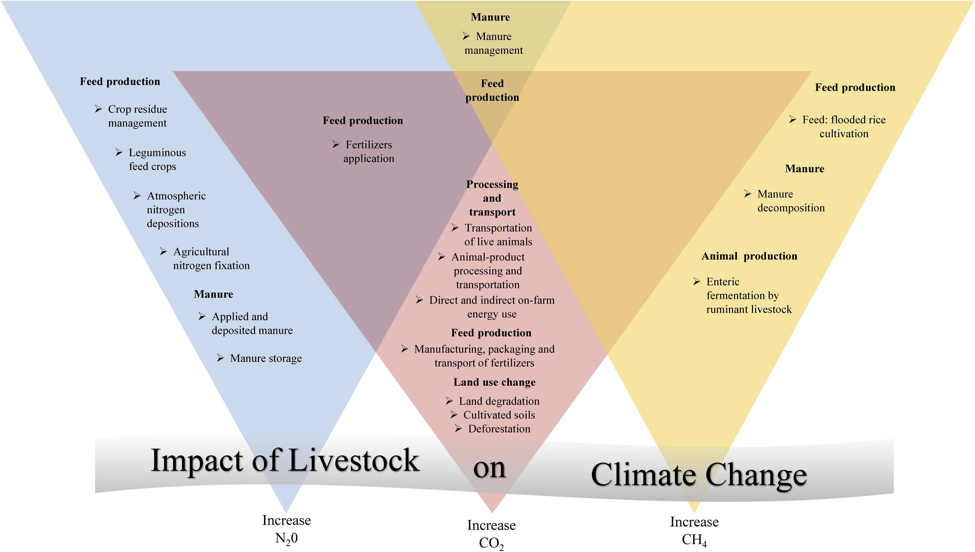
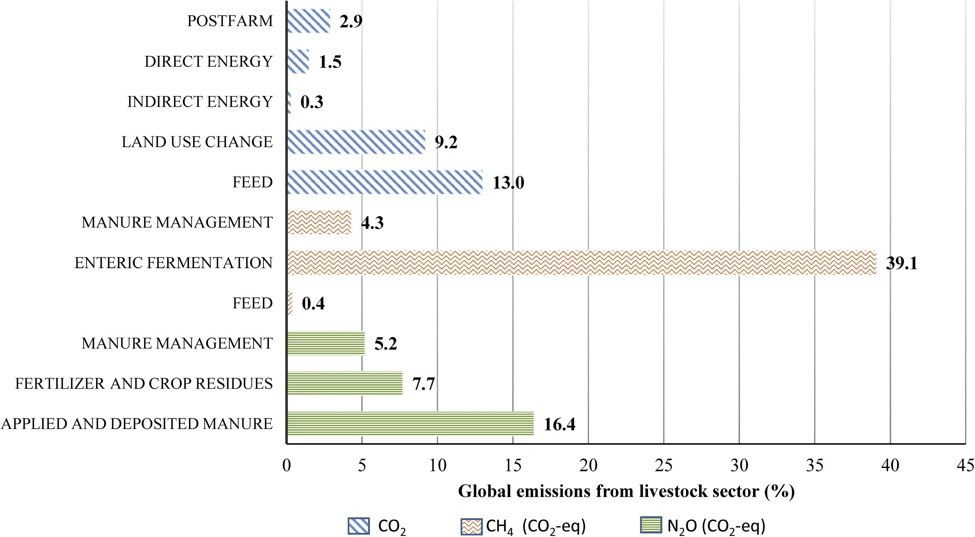
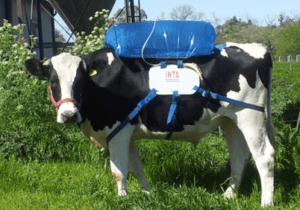
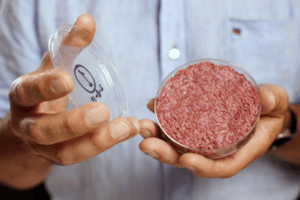
Well, if I weren’t a vegetarian already, I sure would be after reading your article. But alas, trying to convert the rest of the world seems a lost cause. So instead, I’ll instead consider the final question you’ve posed in your post about how to make the beef industry as environmentally (and economically) sustainable as possible.
Now, it seems to me that JBS is doing all the right things: sustainably managing natural resources, investing in operational efficiencies, and engaging the industry in their best practices. As one of the Big Four meat-packers, JBS is surely sitting in a position of power with enough influence to push for major changes in the beef industry as a whole – but, I have my doubts.
Will JBS be enough to get Tyson, Cargill and National Beef (not to mention, their smaller competitors) on board? I would imagine that this type of R&D investment comes with a pretty substantial price-tag – one that perhaps only the Big Four can stomach. And if, as you’ve said, this is a “commodity industry struggling to maintain its profits,” will competitors find the reward worth the cost?
While I’d like to think the Big Four’s commitment to environmental sustainability is genuine, it seems to me they’d only be making these types of investments for one reason: because it makes good business sense. Perhaps these types of changes constitute the only way to ensure that the cows can survive and thrive under new climate conditions (as your Exhibit B suggests). But until consumers put their collective foot down, I can’t imagine they’d be willing to foot the bill for a more expensive beef patty, simply to cover the cost of JBS’ increased R&D investments. And, as long as a beef patty (whether at McDonald’s or the grocery store) is cheaper than a head of lettuce, I can’t imagine the consumer population making any significant changes to their purchasing behavior.
So, is there enough incentive for the Big Four (JBS included) to make such a change? Not from the consumer, there isn’t. But maybe if the government puts its foot down (and we don’t back out of the Paris Climate Accord after all), there may be enough pressure to make environmental sustainability a universal focus (rather than just a farce) for the industry.
I could not agree more with Alison’s sentiment – if I had one wish for the world, it’d be that everybody was vegetarian – better for the planet, their health, and animals.
While I applaud JBS’s sustainability efforts that undeniably increase their costs and squeeze margins in the world of 99 cent hamburgers, I think they will only bring about incremental, negligible impacts. You powerfully started your essay with the most important takeaway: “The ingredient list for your average hamburger includes 15 gallons of water, 14 pounds of feed, and 65 square feet of land”. And while JBS is undertaking efforts to make their operations more sustainable, I think it’s quite hard to make a meaningful dent in the sheer amount of raw resources required to produce beef.
Because of the resource-intensive and environmentally-damaging nature of beef industry, I think the only meaningful sustainable answer is to more aggressively invest into more sustainable protein sources, such as plant-based meat alternatives and lab-grown meat. Beyond investment in disruptive companies that are making progress in these sectors, I think a powerful player like JBS is well positioned to direct some of their lobbying efforts to proactively shape regulation and / or standards for lab grown meat. In addition to diversifying their current product portfolio, having meat alternatives will also make JBS more immune to financial impact of potential future climate change policies / regulations (e.g., a universal carbon tax that would dramatically increase JBS’s cost structure).
This question reminds me of some others we have encountered in class, such as IKEA’s sustainability case and Cynthia Carroll’s mineworking case. In both instances, the protagonists were taking great efforts to act in a socially responsible manner, but were in an industry that generates massive negative externalities. In IKEA, despite efforts at sustainability, the fundamental business strategy was to sell fashionable, low-quality furniture that would quickly be replaced. In Cynthia Carroll, she undertook great efforts to reduce the ~30 annual fatalities from mining accidents, but ignored the ~3,000 annual fatalities resulting from chronic related to working in a mine. For JBS, the challenge is the same: “sustainability” initiatives are being undertaken at an operational level rather than a strategic level, and no amount of tracking or wastewater improvements will remove the fact that raising beef simply requires many times more resources than other forms of protein. The suggestions listed at the end of the post (e.g. diversifying to other protein sources) begin to promise a large impact, but the upshot of these proposals is that JBS should simply no longer be in the cattle business.
Great article Lisa and strong follow-up comments Alison, Alona, and Daniel! Although converting mainstream consumers to vegetarianism has been mentioned above to solve the predicament the beef industry is in, I think it’s fair to say that’s an aspirational and unlikely solution given consumers unwillingness to change when it comes to tasty cheeseburgers and steaks cravings. Therefore, raising beef more sustainably or plant-based meat alternatives then become more reliable marketplace answers.
With the growing population, increasing beef demand (almost 2X in next 35 years) – requires the need for producing more food with fewer resources. This is a global issue we must all address together. I agree with Lisa’s focus on USA Beef production, given its role as the #1 most resource-intensive protein source and one of the most prevalent meats in American cuisine.
As noted, intensive R+D investment will be necessary to truly drive impactful, transformation change. These recommended solutions often require technological advances in feed, animal care, and land usage – all perceived ethical dilemmas for today’s modern consumer food values.
Does more feed supplements for environmental benefits offset consumer offense to increased processing/genetic modifications? (What about all-natural beef?) Another proposed solution is methane collection domes over livestock operations, but the beef industry trends are progressing towards free-range and pasture-grazed beef. How can the industry resolve the divergence to do “better-for-the-environment”, while making scalable solutions that align with evolving consumer food demands? It’s certainly not an easy task.
I think the next step is to engage the consumer in the dialog. There will be no better motivator for the Big Four beef companies than consumers voting with their food dollars at supermarkets and restaurants around the globe. Unfortunately, today, the mainstream consumer base doesn’t know JBS or Cargill – because they’re hidden behind grocery store brand names, distributors, and restaurant chain menus. The outstanding question then becomes, how do you build consumer awareness and drive a market that demands beef that is raised more sustainably? Putting environmentally-conscious consumers in the driver seat instead of the large, multinationals motivated by bottom lines is certainly a strong to start to resolve this highly complex industry dilemma.
Based on this article, it almost sounds like producing beef at any reasonable scale that comes even remotely close to meeting existing consumer demand is not sustainable. While investing in R&D may help to mitigate part of the problem, it sounds like our only truly sustainable alternative is to A) shift consumer demand away from beef, or B) provide a substitute product for beef. In either case, the underlying driver must be consumer demand – ultimately this is the most important driver in meat production. So, with that in mind, I’ll pose a different question – how can we fundamentally change the way that consumers think about food and meat consumption in a time frame that keeps us from hitting the climate change tipping point so many are worried about? Companies like Impossible Foods are aiming to provide substitute, vegetable based products, but the fact remains that the vast majority of meat consumers are not currently concerned enough to shift their behaviors. Will it take dramatic price increases to sway consumer demand, or are there other tools we can use to address the issue from that side of the marketplace in the near term?
An interesting article, which makes it very clear that our beef consumption is not sustainable in the long run, and we will need to come up with alternatives. As you mention, alternative protein sources may be able to replace a large portion of our beef in the future, although for e.g. in vitro meat replacements it may be years until this can be done at lower environmental impact, and at competitive cost. [1]
When this does happen, I expect that meat replacements will mainly usurp the space of ‘low-end’ beef consumed by the mass market, where animal suffering tends to be the most horrible. It is my hope that the decline of meat consumption will not cause the living animals don’t die off. One outcome could be that they become a more highly valued ‘luxury’ option, and are cared for properly during their lives. Even though their gasses are bad for the environment, we definitely don’t want cows to ever disappear completely, though it is unlikely we can teach them not to be flatulent.
[1] http://www.slate.com/articles/technology/future_tense/2015/09/in_vitro_meat_probably_won_t_save_the_planet_yet.html
Great article and comments as well, thanks for sharing, Lisa! I particularly appreciate you incorporating the images–the most striking part of this for me is, frankly, the “fart bag” image! It’s one thing to talk and write about sustainability surrounding the beef industry, but it’s another piece altogether to think about the impact these initiatives have on the animals. If I didn’t feel bad already that these animals go to a slaughterhouse, forcing them to wear these bags makes me feel even worse. I wonder if a big part of the push to sustainability has to do with ethics and fairness to the animals that make this industry happen. Partnerships with certain animal rights groups may help these beef companies attempt to gain more credibility. That said, I think the best part of your argument regards the industry-wide changes you’re suggesting. Climate change is global–it doesn’t care where the emissions happens, we all feel the impact. Just because one company is committed to sustainability doesn’t mean that the climate change issue is fixed (rather, perhaps it opens up more space for the competition to behave even less sustainably). I would push your argument even further to suggest that companies like JBS invest in sustainability initiatives and make partnerships with other companies facing similar issues. Thanks for sharing your article!
The post and the coments implicitly define sustainability as the reduction of mankind’s impact on the environment. The goal of this sustainability is to help all living things prosper despite human population growth – however, it is difficult for humans to prosper when beef is arguably not good for us. The rates of heart disease, cancer, and many other maladies in the developed world relative to undeveloped world are empirically correlated to animal product consumption (Source: The China Study-the most comprehensive nutritional study ever conducted). So while “fart bags” and other solutions do help environmental impact, they don’t address the issue that human beings are simply not designed to eat meat as often as we do (Source: What The Health – a riveting documentary currently available on Netflix).
*Other good documentaries include Forks Over Knives and Cowspiracy.
Thank you for this article, Lisa!
Before getting into the question on beef consumption, I just wanted to bring in more background on JBS. JBS was run by two brothers, who inherited the company from their father. Until pretty recently, these brothers were controlling shareholders and main executives. JBS went from being an unknown and small player in the early 2000’s to becoming the world’s largest beef producer. This huge growth was fostered in part by billions of dollars in loans that the Brazilian development bank lent to JBS. The Batista brothers were growing the company, receiving loans from governmental entities, buying up rivals, and were also buying politicians.[1] In September, JBS CEO Wesley Batista and his brother Joesley Batista were both arrested.[2]
Based on the article and the facts on beef production, I agree with previous comments that sustainable agriculture is bringing incremental improvements to the industry, not radical. Investments in R&D, regulatory changes, energy efficiency, water disposal, and all other initiatives are definitely positive to sustainability and effective in reducing the huge externalities caused by beef production. A more radical impact would be caused by a shift to alternatives to beef protein. Beyond Meat is a company working on producing plant-based meat substitutes, as well as Impossible Burger. Their belief is that by creating tasteful alternatives to meat, consumers will shift demand from beef to their products and, with scale, they will offer a very competitive alternative for consumers. Consumers are more and more educated and there is a seismic shift towards healthier products across consumers of all classes, as long as they can afford it. As long as these new companies can bring scale to their production facilities and bring competitive prices to its consumers, I do think they will help change consumer behavior towards a much more sustainable type of protein. This would result in a radical transformation in the industry.
[1] https://www.economist.com/news/americas/21722696-meat-mongers-whose-testimony-could-end-michel-temers-presidency-brazils-fabulous-batista
[2] http://fortune.com/2017/09/14/jbs-batista-brazil-temer-corruption-insider-trading/
Thanks for this article, this is something I think about often, and it is great to live in a city where many restaurants and stores offer produce and meat that has been more sustain-ably farmed. That being said, I don’t think it is enough for only one player to making this changes. I think the government needs to intervene by extra taxing anyone that is not being sustainable and producing more than their “fair-share” – the tax will incentivize everyone to better their operations and it will also create a more equal plain field for producers that currently spend more money to be sustainable and better compete with the lower prices of the less sustainable players in the market.
That being said, this is not just a problem that only the beef producers should be addressing. As consumers, we should also be cutting our consumption of such products. Not just for our own health but also for the health of the environment. There is very interesting TED talk where the speaker talks about being a weekend non-vegetarian but not eating meat on the weekdays (he describes it as a weekday veg). By doing so, he is able to significantly reduce his meat consumption (by 70%) yet not feel the burden of giving it up completely and making his taste buds unhappy. He also ends up saving money, feels healthier, and even lost some weight. Imagine, if all of us ate half as much meat as we do today, it would be like half of us were vegetarians. What is stopping you from being a weekday veg? [1]
[1] https://www.ted.com/talks/graham_hill_weekday_vegetarian
Very interesting article! I especially liked the picture of the cows “Fart Bags”. Echoing Michael’s comment, I also believe the only solution can come from reducing the demand side of the equation. Unfortunately, not all the money in the world in RD can stop this issue. I feel consumers will only be driven by high price increases that will make them opt for product substitutes. Because a raise in prices doesn’t make sense to producer I feel this is going to be the governments job. In a crazy world were the government interferes to tax meat consumption (like alcohol and tobacco) it could probably lower consumption. The government could also tax the producers based on their emissions so that they would raise prices. Obviously, meat producers won’t be happy with this, but global warming is something the government must control. Meat producers should be taxed the same way some governments tax industrial companies on their emissions.